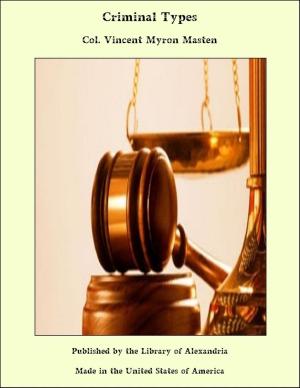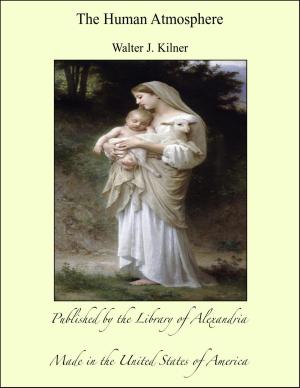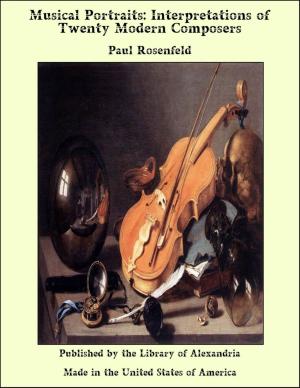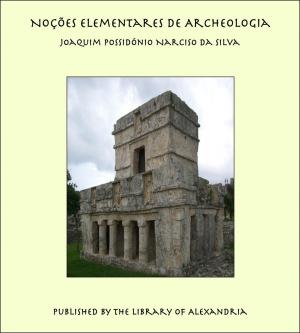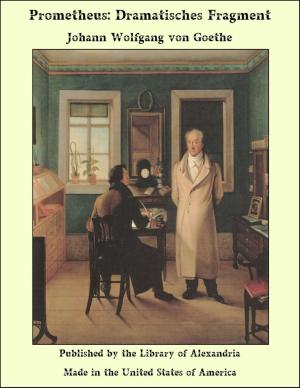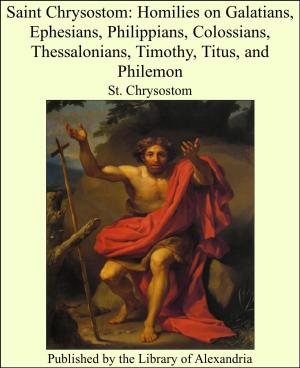| Author: | Annie Wood Besant | ISBN: | 9781465538512 |
| Publisher: | Library of Alexandria | Publication: | March 8, 2015 |
| Imprint: | Language: | English |
| Author: | Annie Wood Besant |
| ISBN: | 9781465538512 |
| Publisher: | Library of Alexandria |
| Publication: | March 8, 2015 |
| Imprint: | |
| Language: | English |
The Place of Masters in Religions Theosophy and the Theosophical Society Three public Lectures delivered in the smaller Queen's Hall, London, on 16th, 23rd, and 30th June 1907. Our subject to-night consists of two words: psychism—spirituality. I am going to speak to you on the subjects denoted by these two words, because there is so much confusion about them in ordinary conversation, in ordinary literature, and out of that confusion much of harm arises. People think of one thing and use the name of the Other, and so continually fall into blunders and mislead Others with whom they talk. I want to-night to draw a sharp and intelligible division between psychism and spirituality; if possible, to explain very clearly what each of them means; so that, thoroughly understanding the meaning of the things, people may choose for themselves which of the two they desire to evolve, or unfold, within themselves. For if a person, desiring to unfold the spiritual nature, uses the means which are only adapted for developing the psychic nature, disappointment, possibly danger, will result; while, on the Other hand, if a person desires to develop the psychic nature, and thinks that he will reach that development quickly by unfolding his spiritual powers, he also is equally doomed to disappointment; but in the second case, only to disappointment for a time. For while it is not true that the great psychic is necessarily a spiritual person, it is true that the great spiritual person is inevitably a psychic. All the powers of Nature are subject to the Spirit, and hence, when a man has truly unfolded his spiritual nature, there is nothing in the lower world which is not open to him and obedient to his will. In that sense, then, the man who follows the spiritual path will not ultimately be disappointed if he is seeking psychic development, but the very seeking for it will, on the spiritual path, act as a certain barrier. I shall return to the point again presently, and show you in what sense, and why, it is true that the development of the psychic powers may hinder the unfolding of the spiritual. Now, to distinguish clearly between the two, I will begin with two brief definitions.
The Place of Masters in Religions Theosophy and the Theosophical Society Three public Lectures delivered in the smaller Queen's Hall, London, on 16th, 23rd, and 30th June 1907. Our subject to-night consists of two words: psychism—spirituality. I am going to speak to you on the subjects denoted by these two words, because there is so much confusion about them in ordinary conversation, in ordinary literature, and out of that confusion much of harm arises. People think of one thing and use the name of the Other, and so continually fall into blunders and mislead Others with whom they talk. I want to-night to draw a sharp and intelligible division between psychism and spirituality; if possible, to explain very clearly what each of them means; so that, thoroughly understanding the meaning of the things, people may choose for themselves which of the two they desire to evolve, or unfold, within themselves. For if a person, desiring to unfold the spiritual nature, uses the means which are only adapted for developing the psychic nature, disappointment, possibly danger, will result; while, on the Other hand, if a person desires to develop the psychic nature, and thinks that he will reach that development quickly by unfolding his spiritual powers, he also is equally doomed to disappointment; but in the second case, only to disappointment for a time. For while it is not true that the great psychic is necessarily a spiritual person, it is true that the great spiritual person is inevitably a psychic. All the powers of Nature are subject to the Spirit, and hence, when a man has truly unfolded his spiritual nature, there is nothing in the lower world which is not open to him and obedient to his will. In that sense, then, the man who follows the spiritual path will not ultimately be disappointed if he is seeking psychic development, but the very seeking for it will, on the spiritual path, act as a certain barrier. I shall return to the point again presently, and show you in what sense, and why, it is true that the development of the psychic powers may hinder the unfolding of the spiritual. Now, to distinguish clearly between the two, I will begin with two brief definitions.





